Faith Formation
"Catholic schools, in partnership with parents, are one of the most important and most effective tools we have in the Church for passing on the faith and forming our youth."
– Archbishop Joseph F. Naumann

Curriculum Rooted in Faith
An education in our Catholic schools is one rooted in faith. Faith formation is constant in all subject areas as students make the connection between all things and Christ. The entire curriculum academic curriculum is centered around Truth, Beauty, and Goodness.
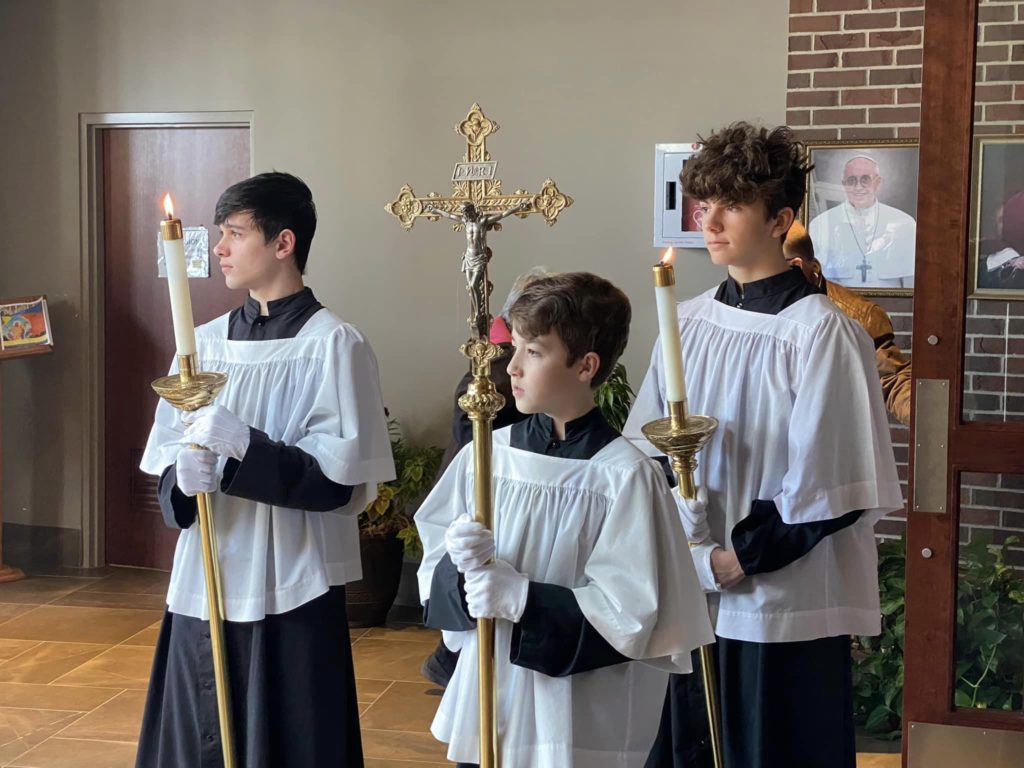
Prayer and Worship
All schools start and end their day with prayer. Students regularly come together at weekly Mass in celebration of the Eucharist. Throughout the school year, students have opportunities for Reconciliation, and participate in prayer services, Stations of the Cross, and Rosary. Students in 2nd grade receive sacramental preparation for First Reconciliation and First Holy Communion and 8th grade students prepare for Confirmation.

Service to Others
Students participate in regular service-learning projects, learning through action the importance of sharing your time and talents with others. Examples of serving-learning across the Archdiocese include organizing food drives, working at food kitchens, visiting the elderly in nursing homes, adopting families at Christmas, and hosting blood drives.
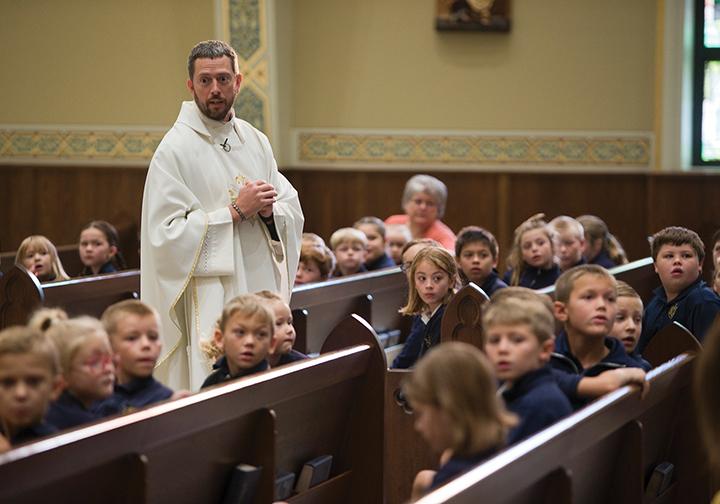
Catholic Principles and Teachings
Students receive formal instruction on Catholic principles, social teaching, the Bible, Ten Commandments, prayers, the Sacraments, virtues, and Church history. Through teaching, discussion, and reflection, students come to understand the richness of our Catholic heritage. These concepts and beliefs are reinforced in the academic curriculum, Theology of the Body, and Education in Virtue curriculum. School policies and practices also reflect Catholic values and beliefs.
– Click to view the Church Teachings on Special Issues of Concern

Family Partnerships
With parents serving as a child’s first educator, our Catholic schools believe strong partnerships with families is imperative for the academic success and spiritual formation of a child. Families are welcome to attend school Masses and are invited to events and activities throughout the year.
To support parents in their roles, the Archdiocese offers several resources for families to include: Catholic Parenting Newsletter, a list of Catholic counselors in the community, and other programs through the Office of Marriage and Family Life.
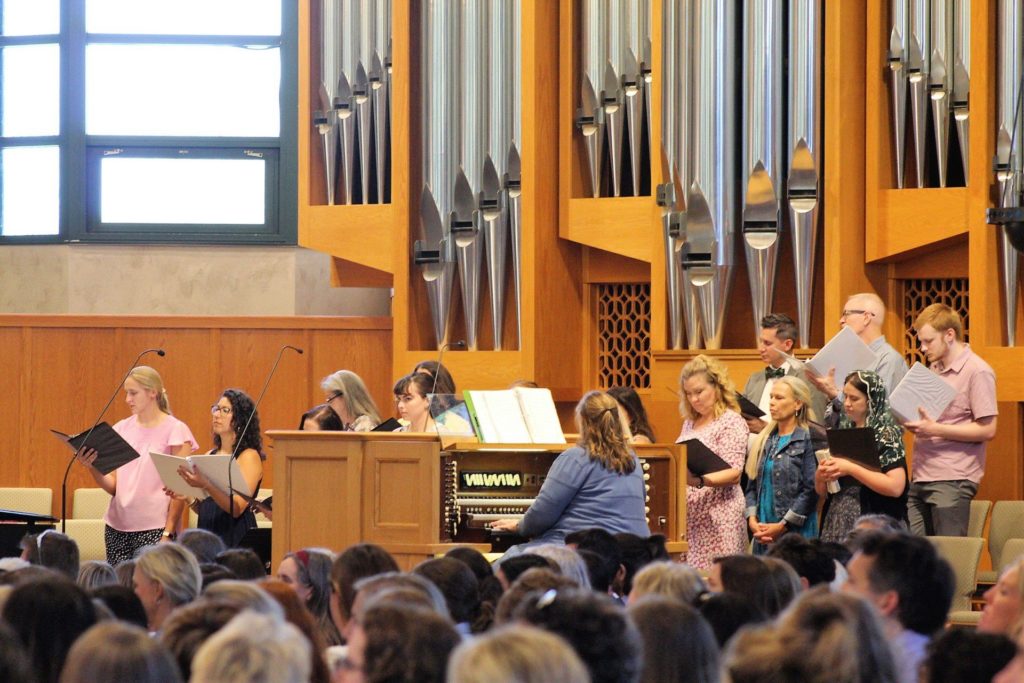
Faculty and Staff Formation
Faculty and staff are encouraged to develop their own relationship with God, which is why schools create opportunities for discussion and reflection for its faculty and staff. Additionally, one time per month, there is an in-service day focused on the professional and spiritual development of teachers. Led by the Holy Family School of Faith Institute, teachers come together to deepen their encounter with Christ as they immerse in the teachings of Jesus, virtue, and prayer through small group evangelization and large group formation.
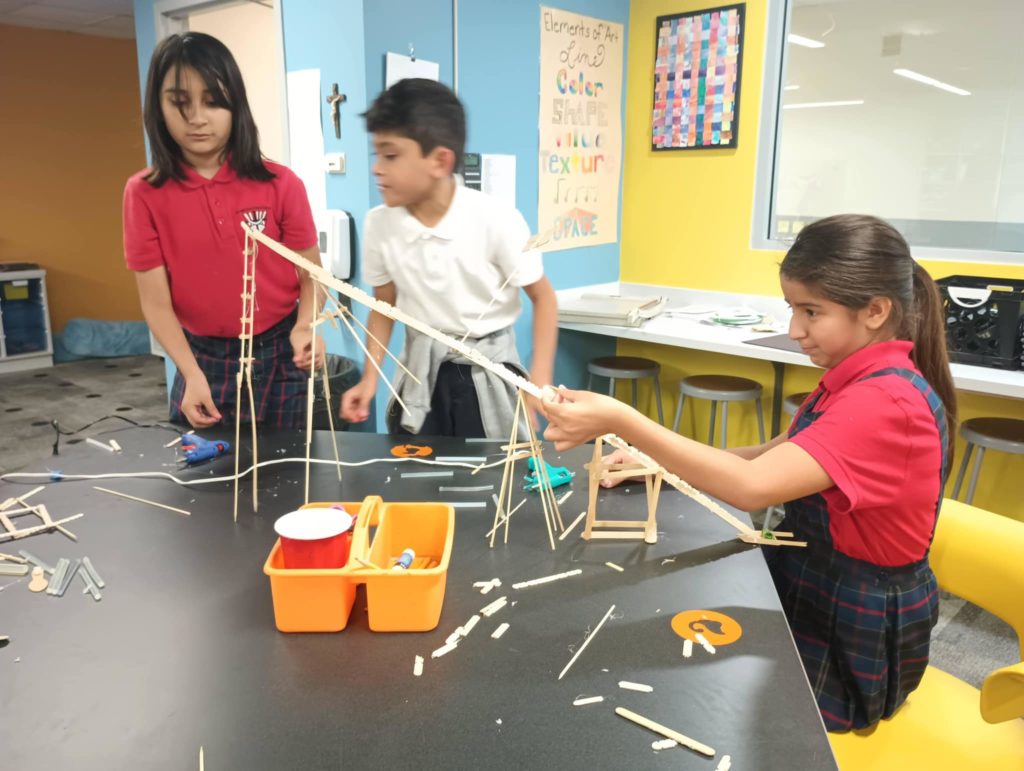
Math
A central purpose of math instruction in Catholic schools is to find the truth and beauty in the mathematical world and recognize the symmetry and orderliness in the universe God created. Symbols play a major role in the Catholic understanding of reality. To find the truth, the meaning of life, is a goal of all human reasoning; the Catholic tradition holds that such meaning does exist at an ultimate level. God, and that the journey toward discovery of that meaning is deeply satisfying.
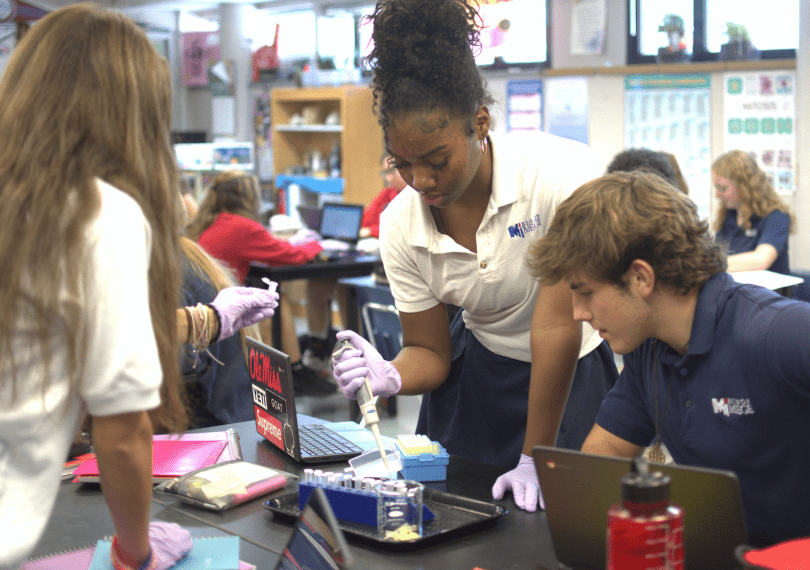
Science
God has written two books: nature and the Bible. All that exists carries the sign of the Creator; natural law and faith are complementary. We celebrate the great mystery of life and God’s goodness. Faith and reason are not opposed to one another; they exist in mutual support. Reason challenges faith to explain itself (the how) and faith challenges reason to go beyond itself, to recognize the unexplainable (the why).
Fine Arts
The purpose of fine arts education is to share the creative vision of how God is present in our human experiences. Students will learn about the vast contributions of the Church to the fine arts. In addition, other forms of music, art and drama that are chosen for students to explore will be oriented toward beauty and goodness.
Language Arts
Catholic fiction provides vivid images of Catholic faith and practice and opens readers’ imaginations to the mystery of God’s love. Conversation is a vibrant intellectual exchange that brings the past in communication with the present. Knowledge gained is not self-contained, but rather is the outcome of scientific, critical inquiry, complemented by deep-seated principles of faith. So, the content of what is learned and becomes known is necessarily complemented by a real appreciation and profound respect for the human person.
Math
A central purpose of math instruction in Catholic schools is to find the truth and beauty in the mathematical world and recognize the symmetry and orderliness in the universe God created. Symbols play a major role in the Catholic understanding of reality. To find the truth, the meaning of life, is a goal of all human reasoning; the Catholic tradition holds that such meaning does exist at an ultimate level, God, and that the journey toward discovery of that meaning is deeply satisfying.
Science
God has written two books: nature and the Bible. All that exists carries the sign of the Creator; natural law and faith are complementary. We celebrate the great mystery of life and God’s goodness. Faith and reason are not opposed to one another; they exist in mutual support. Reason challenges faith to explain itself (the how) and faith challenges reason to go beyond itself, to recognize the unexplainable (the why).
Social Studies
Students will understand how using knowledge of the past assists in answering questions that mankind has faced throughout history. The social studies classroom is a place where students learn to integrate the historical events retold in the Bible to the history they study. In addition, students should recognize the biblical roots of modern culture.
Religion
The Catholic faith is a joyful faith because of the Resurrection. Therefore, all instruction is designed to embody the optimism and joyfulness of the journey to eternal life with God the Father as developed through our relationship with Jesus Christ and guided by the Holy Spirit. The joyful celebration of the Mass and sacraments are an affirmation of our dignity. The sacramentals are sacred signs embedded in our faith in action.
